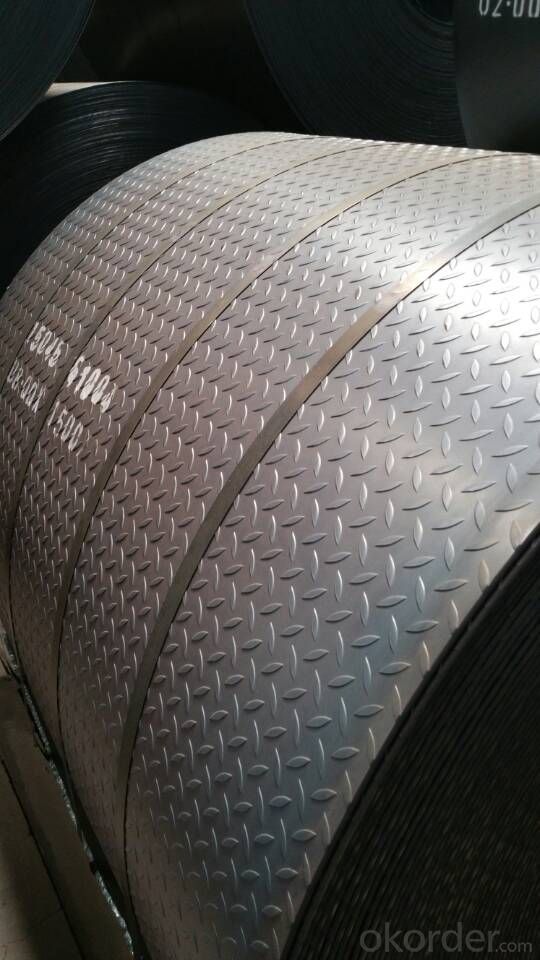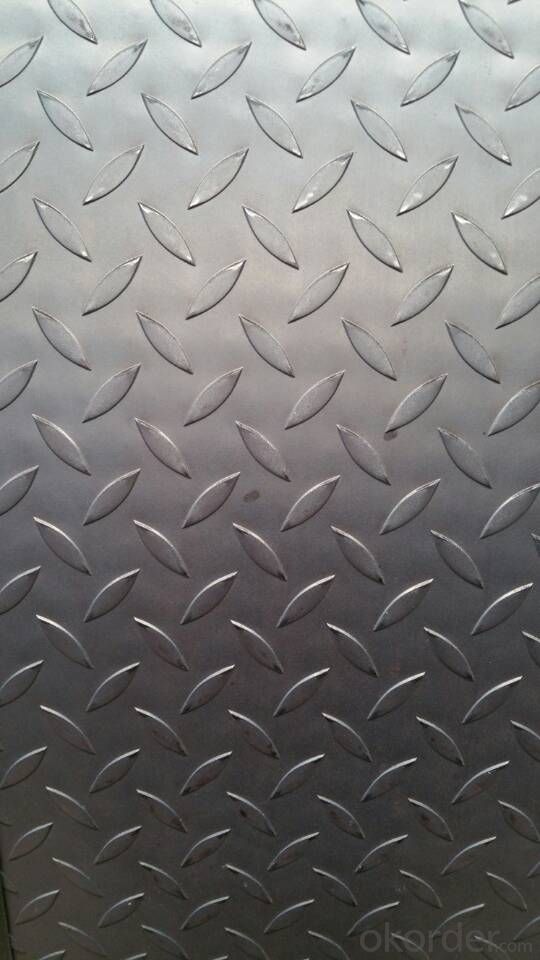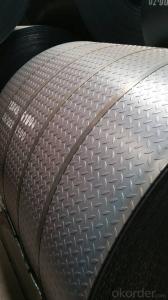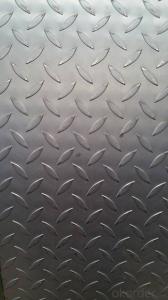40Mn Hot Rolled Steel Plate High Alloy Steel Sheet
- Loading Port:
- Tianjin
- Payment Terms:
- TT OR LC
- Min Order Qty:
- 25 m.t.
- Supply Capability:
- 50000 m.t./month
OKorder Service Pledge
OKorder Financial Service
You Might Also Like
Item specifice
40Mn Hot Rolled Steel Plate High Alloy Steel Sheet
Product Description:
1.40Mn hot rolled steel plate and sheet with high strength
2. Thickness:8mm-250mm, width:1500mm-2250mm
3.ISO and BV certificate
4.Standard:GB/T 3274-2007,JIS G3106,DIN17100, ASTM, BS4360
5.Delivery condition: According to the requirements of customers, the carbon steel mild steel plate and sheet could be hot rolled, cold rolled, normalized, annealed, tempered, normalized+ tempered and tempering.
6.Application:The low alloy steel plate and sheet with high strength is mainly used in making Plants, general constructions, different kinds of engineering machines such as electric wheels skip, mine car, excavator, loaders, bulldozers, industrial blower, various cranes used in mines and other structures.
Specification:
Material | 40Mn | Round bar | Dia(mm) | 16-600 |
Process | EAF + LF + VD + Forged + Heat Treatment (optional) | Length (mm) | Max 12000 | |
Heat treatment | Normalized / Annealed / Quenched / tempered | Flat bar | Thickness(mm) | 8-500 |
Delivery condition | Hot forged +Rough machined (black surface after Q/T)+ Turned (optional) | Width(mm) | 70-200 | |
Test | Ultrasonic test according to SEP 1921-84 D/d | Length (mm) | Max 12000 |
Chemical Composition:
C | Si | Mn | Cr | Ni | Cu |
0.5~0.8 | 0.17~0.37 | 0.25~1.2 | ≤0.25 | ≤0.30 | ≤0.25 |
Packing and Delivery:
Packing in bundle with steel strips and shipped by break bulk vessel or container (depend on target market and different ports)
Delivery Detail: Approx.45 days
Usage and Applications:
1.40Mn Hot Rolled Steel Plate High Alloy Steel Sheet is used in a large number of architectural and engineering structures. Or it can be used in construction of plants for the production of steel house frames, high-voltage transmission towers, bridges, vehicles, boilers, containers, ships, etc.
2. And we can use this kind of product on the performance of the mechanical parts if the demand is not very high.
3. Some especial material steel round bar can be used for main shaft of steamer, hummer shank, with big section and supper force.
Product Show:


- Q:Can special steel be used in the oil and gas industry?
- Yes, special steel can be used in the oil and gas industry. Special steels such as stainless steel, duplex stainless steel, and alloy steel are commonly utilized in this sector due to their high strength, corrosion resistance, and ability to withstand extreme temperatures and pressures. These materials are extensively used in various applications, including pipelines, offshore platforms, storage tanks, and drilling equipment, to ensure safety, reliability, and longevity in oil and gas operations.
- Q:How does special steel contribute to the automotive racing industry?
- Special steel contributes to the automotive racing industry by providing high-strength and lightweight materials that enhance the performance and safety of race cars. These steel alloys are used in various components, such as engine parts, chassis, and suspension systems, allowing for improved speed, maneuverability, and durability. Additionally, special steel's exceptional heat resistance and ability to withstand extreme conditions make it vital for engines that generate immense power and operate at high temperatures. Overall, special steel plays a crucial role in pushing the boundaries of automotive racing technology and enabling teams to achieve optimal performance on the track.
- Q:How does special steel contribute to the manufacturing of surgical instruments?
- Special steel, which is also known as stainless steel, plays a vital role in the production of surgical instruments. Its exceptional properties make it an ideal material for manufacturing high-quality surgical instruments used in various medical procedures. To begin with, special steel exhibits a high resistance to corrosion and rust. Surgical instruments are constantly exposed to bodily fluids, sterilization processes, and harsh cleaning agents. The corrosion resistance of special steel guarantees the durability of these instruments, enabling them to withstand repeated use and cleaning without compromising their integrity. Furthermore, special steel possesses excellent strength and hardness characteristics. Surgical instruments must be robust and capable of withstanding the forces and pressures exerted during surgeries. The high strength and hardness of special steel ensure that these instruments retain their shape and sharpness even after multiple uses, minimizing the risk of breakage or deformation during critical procedures. Moreover, special steel is biocompatible, meaning it does not elicit reactions or complications when in contact with bodily tissues or fluids. This is particularly important for surgical instruments that come into direct contact with patients' bodies. The biocompatibility of special steel guarantees that there are no adverse reactions or complications when these instruments are used in surgeries, thereby reducing the risk of infections or other complications. In addition, special steel is highly machinable and can be easily molded into intricate shapes and designs. Surgical instruments require precision and accuracy to effectively fulfill their intended functions. The machinability of special steel allows manufacturers to create complex instruments with fine details and features, ensuring their optimal performance during surgical procedures. Furthermore, special steel can be efficiently sterilized. Sterilization is a critical step in ensuring the safety and effectiveness of surgical instruments. Special steel's ability to withstand high temperatures and various sterilization methods, such as autoclaving or ethylene oxide gas sterilization, makes it an ideal choice of material for surgical instruments. In conclusion, special steel significantly contributes to the manufacturing of surgical instruments due to its corrosion resistance, strength, biocompatibility, machinability, and sterilization capabilities. These properties guarantee that surgical instruments made from special steel are durable, reliable, safe, and effective in medical procedures, ultimately enhancing the success of surgeries and improving patient outcomes.
- Q:Can special steel be used for luxury goods?
- Yes, special steel can be used for luxury goods. Special steel often possesses superior qualities such as durability, strength, and resistance to corrosion, making it an ideal material for high-end products like luxury watches, jewelry, and accessories. Additionally, the uniqueness and exclusivity associated with special steel can enhance the appeal and desirability of luxury goods.
- Q:What are the main advantages of using special steel in the construction of bridges?
- The main advantages of using special steel in the construction of bridges are its exceptional strength and durability. Special steel alloys offer high tensile strength, allowing for lighter bridge designs and reducing the overall weight of the structure. This not only makes construction and transportation easier but also minimizes the environmental impact. Additionally, special steel exhibits excellent corrosion resistance, ensuring the longevity of the bridge even in harsh weather conditions. Its superior toughness and resistance to fatigue make it ideal for withstanding heavy loads and frequent use, ensuring the safety and reliability of the bridge for many years.
- Q:What is the impact strength of special steel?
- The impact strength of special steel is typically higher than that of regular steel, which means it can withstand greater force or shock without breaking or deforming.
- Q:What are the common grades of special steel?
- The common grades of special steel vary depending on the specific application and desired properties. Some of the commonly used grades include: 1. Stainless steel: This is a corrosion-resistant steel alloy that contains a minimum of 10.5% chromium. Grades such as 304, 316, and 410 are commonly used in various industries due to their excellent corrosion resistance, high strength, and good formability. 2. Tool steel: These grades are specifically designed for toolmaking and are known for their high hardness, wear resistance, and toughness. Common tool steel grades include D2, A2, O1, and S7, each having specific properties suitable for different applications. 3. High-speed steel (HSS): HSS is a type of tool steel that can retain its hardness and cutting ability even at high temperatures. It is commonly used in cutting tools such as drills, end mills, and taps. M2, M35, and M42 are some of the common grades of HSS. 4. Alloy steel: As the name suggests, alloy steel is made by adding different alloying elements to enhance specific properties. Grades such as 4140, 4340, and 8620 are commonly used due to their high strength, toughness, and wear resistance. They find applications in industries like automotive, aerospace, and machinery. 5. Spring steel: Spring steel is known for its ability to return to its original shape after being bent or twisted. Grades like 1095 and 5160 are commonly used in the manufacturing of springs, suspension components, and hand tools. These are just a few examples of the common grades of special steel. There are numerous other grades available, each with unique properties and applications. It is important to select the appropriate grade based on the specific requirements of the intended use.
- Q:Can special steel be used in the appliance manufacturing industry?
- Yes, special steel can be used in the appliance manufacturing industry. Special steels, such as stainless steel or high-strength steel, offer various advantages such as corrosion resistance, durability, and enhanced mechanical properties. These qualities make them suitable for manufacturing appliances that require high performance, such as refrigerators, ovens, or washing machines. Additionally, special steels can be customized to meet specific design requirements and can contribute to the overall aesthetic appeal of the appliances.
- Q:What are the applications of special steel in the electronics industry?
- Special steel is widely used in the electronics industry due to its unique properties and benefits. Some of the applications of special steel in this industry include the manufacturing of electronic components, such as connectors, springs, and contacts, which require high strength and corrosion resistance. Special steel is also used in the production of magnetic cores for transformers and inductors, as it exhibits excellent magnetic properties. Additionally, special steel is utilized in the fabrication of precision tools and equipment used in electronics manufacturing processes, ensuring high precision, durability, and reliability. Overall, the applications of special steel in the electronics industry contribute to enhanced performance, efficiency, and longevity of electronic devices and systems.
- Q:How does special steel contribute to the renewable energy industry?
- Special steel contributes to the renewable energy industry by providing durable and high-performance materials for various applications. It is used in the construction of wind turbines, solar panels, and hydroelectric power plants, enhancing their efficiency and longevity. Special steel also plays a crucial role in the manufacturing of energy storage systems, such as batteries, ensuring their reliability and safety. Overall, special steel enables the renewable energy sector to achieve higher energy output, reduce carbon emissions, and accelerate the global transition to sustainable sources of power.
1. Manufacturer Overview |
|
|---|---|
| Location | |
| Year Established | |
| Annual Output Value | |
| Main Markets | |
| Company Certifications | |
2. Manufacturer Certificates |
|
|---|---|
| a) Certification Name | |
| Range | |
| Reference | |
| Validity Period | |
3. Manufacturer Capability |
|
|---|---|
| a)Trade Capacity | |
| Nearest Port | |
| Export Percentage | |
| No.of Employees in Trade Department | |
| Language Spoken: | |
| b)Factory Information | |
| Factory Size: | |
| No. of Production Lines | |
| Contract Manufacturing | |
| Product Price Range | |
Send your message to us
40Mn Hot Rolled Steel Plate High Alloy Steel Sheet
- Loading Port:
- Tianjin
- Payment Terms:
- TT OR LC
- Min Order Qty:
- 25 m.t.
- Supply Capability:
- 50000 m.t./month
OKorder Service Pledge
OKorder Financial Service
Similar products
New products
Hot products
Related keywords





























